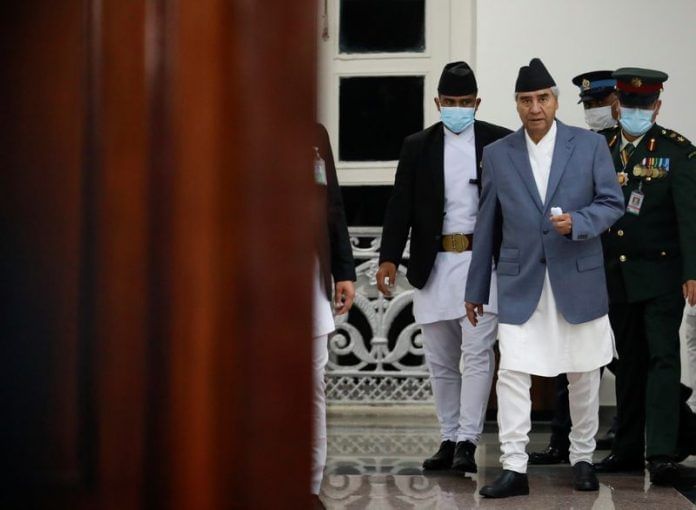By Gopal Sharma
KATHMANDU (Reuters) -The ruling Nepali Congress party emerged as the single largest party in Nepal’s general election last month, winning 89 seats in the 275-member parliament, and its leader Sher Bahadur Deuba is likely to retain his post as prime minister.
The five-party alliance led by the Nepali Congress, which has been in power since July last year, won 136 seats, just two short for the 138 required for a majority, a tally of results from the Election Commission showed on Wednesday.
Deuba, who is considered close to India, is in a better position to muster support for a majority, analysts said. The alliance led by his main rival, K.P.Sharma Oli of the Nepal Communist Unified Marxist Leninist Party (UML), won 92 seats.
“The present ruling alliance is most likely to form a new government because it needs the support of only a few members which could be easily won,” said Krishna Khanal, a retired professor of political science at the Tribhuvan University in Kathmandu.
“It would be difficult for the other alliance to garner enough support for a majority.”
Asian giants China and India jostle for influence in Nepal, a Himalayan nation wedged between them. The Nepali Congress party is seen as pro-India, while the UML is considered closer to China.
Nepal, one of the poorer countries in the world, has had 10 different governments since the abolition of a 239-year-old monarchy in 2008.
Its three major parties – Nepali Congress, UML and the Maoist Centre – have all led different coalitions in the past but none have served a full five-year term due to power struggles and infighting.
Analysts said many young candidates who are from newly formed smaller parties or are independents had won in the election, signalling many voters were frustrated with traditional parties and wanted change.
(Reporting by Gopal Sharma, Writing by Manoj Kumar, Editing by Andrew Heavens and Raju Gopalakrishnan)
Disclaimer: This report is auto generated from the Reuters news service. ThePrint holds no responsibilty for its content.






